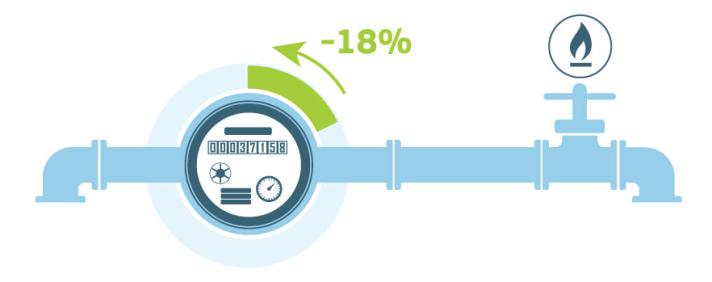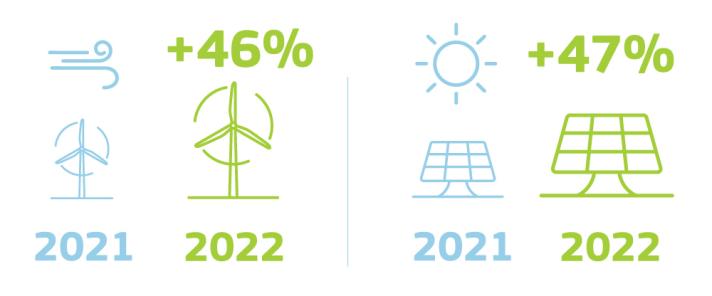One year following the launch of the REPowerEU plan, the EU remains dedicated to its commitment to saving and producing clean energy. It aims to diversify energy supplies to avoid shortages, all the while speeding up a just and clean energy transition.
The Commission has collected data on the progress of the REPowerEU plan implementation, which is closely tied to the European Semester, a structured process used by the EU to coordinate economic policies alongside ensuring the sustainable development and economic stability of member countries.
Factsheets
On 24 May 2023, the Commission published a series of 28 documents – one per EU country and one for the EU as a whole - outlining the progress and commitments made towards the REPowerEU objectives. These factsheets are structured by the following 7 key themes
- energy figures (energy mix and electricity mix)
- energy saving measures
- diversification measures
- EU Energy Platform
- accelerating clean energy
- energy price developments
- Recovery and Resilience Facility and its REPowerEU chapters
Thanks to the actions taken, and the unity and determination shown in handling the crisis in the first year, the EU has so far collectively surpassed the REPowerEU objectives. Some examples are described and visualised below.
Saving energy to address the high prices
The implementation of the REPowerEU plan in its first year has led to one of the steepest declines in gas demand in EU history.
The EU reduced its gas demand by 18% from August 2022 to March 2023, compared to the previous 5-year average over that same period, which corresponds to 52.8 billion cubic meters (bcm) of gas.

This is more than the 15% target set in Regulation EU/2022/1369 on EU-coordinated gas demand reduction measures.
Considering the security of supply scenarios and assumptions for the upcoming year, the EU has extended the gas demand reduction measures until March 2024. This extension will save an additional 60 bcm of gas over the next 12 months, surpassing the expected gas volumes to be imported from Russia in 2023, including both pipeline and Liquefied Natural Gas (LNG).
The amended Gas Storage Regulation (EU/2022/1032) required EU countries’ underground gas storage facilities to be filled to at least 80% of their capacity by 1 November 2022, rising to 90% for 2023 onwards. In November 2022, the EU-wide filling level reached 95% and by January 2023, the filling level remained above 80%. The efficiency of these rules, combined with the efforts made under the Regulation for gas demand reduction, allowed the EU to leave the heating season 2022/23 with 56% of gas in storage, a historic high.
Diversifying energy supplies
EU dependence on Russian gas decreased at a faster pace than expected in 2022.
At the beginning of 2021, the EU imported 90% of its gas consumption, with Russia providing more than 40% of the EU’s total pipeline gas demand. According to early statistical data, in the EU imports of Russian gas were reduced by 74% in March 2023, compared to March 2021.
The common gas purchasing platform “Aggregate EU” was launched on 25 April 2023. In May, the EU managed to attract bids from 25 supplying companies, equivalent to more than 13.4 bcm of gas. This surpasses the 11.6 bcm of joint demand EU companies submitted through the first tender. The Commission has also worked on strengthening relations with its international partners. LNG imports from non-Russian suppliers increased from 54.4 bcm in 2021 to 98.3 bcm in 2022.
Speeding up the clean energy transition
The pace of renewable energy installations accelerated last year. A total of 16 GW of wind power and 41 GW of solar power were installed in 2022, representing an increase of 46% and 47% respectively compared to 2021, saving approximately 11 billion cubic metres of gas.

While the energy crisis did not interrupt the phase-down of fossil fuels, coal phase-out has been less pronounced than initially expected in order to substitute Russian fossil fuels. However, none of the commitments undertaken by EU countries to move away from this energy source has been suspended or revoked.
Several flagship projects, such as an EU solar strategy, the doubling of heat pumps (sales increased by 40 % in 2022) and a Biomethane Action Plan, were also undertaken.
The following new alliances with the renewables sector were launched
- March 2023
A large-scale skills partnership on renewable energy production
- December 2022
- September 2022
- June 2022
